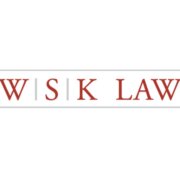Best Banking & Finance Lawyers in Cambridge
Share your needs with us, get contacted by law firms.
Free. Takes 2 min.
List of the best lawyers in Cambridge, Canada
About Banking & Finance Law in Cambridge, Canada
Banking and finance law in Cambridge, Canada is part of a broader legal framework that governs how individuals, businesses, and financial institutions interact in the marketplace. Situated within Ontario, Cambridge adheres to both federal and provincial regulations, ensuring stability and fairness in financial transactions. The area encompasses rules relating to borrowing, lending, financial disputes, mortgages, investments, securities, and compliance with relevant legislation. Whether you are an individual seeking personal banking services or a business looking to secure financing or handle complex financial transactions, banking and finance law aims to protect interests and maintain the integrity of the financial system.
Why You May Need a Lawyer
There are several situations where professional legal assistance is essential in the realm of banking and finance:
- Negotiating or reviewing loan agreements, mortgages, or financing arrangements
- Understanding your rights in the event of a banking dispute, fraud, or alleged financial misconduct
- Navigating complex business financing, such as syndicated loans or restructuring debt
- Dealing with bankruptcy, insolvency, or collections actions
- Ensuring regulatory compliance for businesses operating in the financial sector
- Buying or selling a business that involves significant financial transactions
- Handling investment disputes or securities regulations concerns
- Protecting yourself from predatory lending or unfair financial practices
- Interpreting financial agreements and contracts
Legal professionals can provide crucial guidance and advocacy, helping individuals and businesses avoid costly mistakes and protect their interests.
Local Laws Overview
In Cambridge, banking and finance operations are shaped by a mix of federal and provincial statutes. Banks are primarily governed by the federal Bank Act, which outlines licensing, conduct, consumer protection, and dispute resolution for Schedule I and II chartered banks. Credit unions and caisses populaires in Ontario fall under the Credit Unions and Caisses Populaires Act, setting specific rules for membership, lending practices, and financial oversight at the provincial level.
Ontario’s Consumer Protection Act and Personal Property Security Act also play significant roles by dictating lending, borrowing, and secured transactions rules. Businesses and individuals must comply with the Proceeds of Crime (Money Laundering) and Terrorist Financing Act for anti-money laundering practices. Securities transactions and investments are regulated by the Ontario Securities Act, ensuring transparent and fair trading.
Local courts, such as the Ontario Superior Court of Justice, also handle banking and finance-related disputes. Legal practitioners in Cambridge are bound by the Law Society of Ontario’s regulations and professional standards, maintaining ethical and effective representation in financial matters.
Frequently Asked Questions
What should I do if my bank account is frozen without notice?
Immediately contact your bank to understand the reason for the freeze. There could be several causes, such as fraud prevention, court orders, or administrative issues. If you believe it was done in error or unfairly, a lawyer can review your case and help you resolve the matter efficiently.
How can I ensure a business loan agreement is fair and legally binding?
Consult a banking and finance lawyer before signing. They can review terms, identify any risky clauses, and negotiate changes to protect your interests. They will ensure all legal requirements are met for the agreement to be enforceable.
What legal steps should I take before borrowing a large amount of money?
Carefully review the loan documents and understand all obligations, including interest rates, fees, and repayment terms. A lawyer can help spot potential issues, explain your rights, and advise you on alternatives or risks before you proceed.
Can a lender take my property if I default on a loan?
If the loan is secured with collateral, the lender may have the right to seize the property through a legal process, such as foreclosure or repossession. Ontario law requires the lender to follow specific procedures to enforce these rights, and you may have legal defenses or options available.
What are my rights if I believe my bank has made a mistake with my account?
Contact your bank’s complaint department first. If the issue is not resolved, you may escalate the matter to the Ombudsman for Banking Services and Investments or seek legal advice. Lawyers can help you recover losses and hold the bank accountable under consumer protection laws.
How does bankruptcy affect my loans and credit in Cambridge?
Filing for bankruptcy is a legal process that can relieve you from certain debts, but it also significantly impacts your credit rating and future borrowing ability. Some loans, such as student loans or secured debts, might not be fully discharged. Bankruptcy proceedings are governed by the Bankruptcy and Insolvency Act, and legal guidance is highly recommended.
Are there laws protecting me from predatory lending practices?
Yes, both federal and Ontario laws prohibit unfair or misleading lending practices. The Criminal Code of Canada forbids charging usurious interest rates, and the Consumer Protection Act in Ontario safeguards against deceptive loan agreements. Legal professionals can assist if you feel victimized by such practices.
What are my obligations regarding anti-money laundering laws?
Financial businesses must comply with the Proceeds of Crime (Money Laundering) and Terrorist Financing Act, including client identification, recordkeeping, and reporting suspicious transactions. Non-compliance can result in severe penalties. Individuals dealing with large or unusual transactions should consult a lawyer to ensure they are meeting legal requirements.
Can I resolve a banking dispute without going to court?
Many banking disputes can be resolved through negotiation, mediation, or alternative dispute resolution mechanisms provided by financial institutions. Legal counsel can guide you through these processes and represent your interests, increasing the chances of a favorable, out-of-court resolution.
When should a business consult a lawyer about banking and finance issues?
Businesses should seek legal advice when entering new financing arrangements, restructuring debt, issuing securities, facing regulatory audits, or whenever there is uncertainty about compliance with financial laws. Early legal consultation can prevent costly errors and ensure operations run smoothly.
Additional Resources
- Financial Consumer Agency of Canada - Provides information on consumer rights, complaint processes, and financial literacy
- Ontario Securities Commission - Oversees securities markets in Ontario and provides educational materials for investors
- Ombudsman for Banking Services and Investments - Helps resolve disputes between financial service providers and their clients
- Law Society of Ontario - Offers a lawyer directory and public resources on legal rights in banking and finance matters
- Credit Counselling Canada - Offers advice on debt management and financial planning
- ServiceOntario - Provides access to government services and information on laws affecting banking and finance
Next Steps
If you are facing a banking or finance legal issue in Cambridge, Canada, start by gathering all relevant documents, such as loan agreements, account statements, and correspondence with financial institutions. Clearly outline your main concerns or questions. Consider reaching out to a lawyer with experience in banking and finance law to discuss your situation. Early legal advice can save you time, money, and unnecessary stress. If your problem involves a particular bank or financial product, use available dispute resolution channels offered by the institution. For larger or more complex matters, professional legal representation may be the best course of action to protect your rights and achieve a favorable outcome.
Lawzana helps you find the best lawyers and law firms in Cambridge through a curated and pre-screened list of qualified legal professionals. Our platform offers rankings and detailed profiles of attorneys and law firms, allowing you to compare based on practice areas, including Banking & Finance, experience, and client feedback.
Each profile includes a description of the firm's areas of practice, client reviews, team members and partners, year of establishment, spoken languages, office locations, contact information, social media presence, and any published articles or resources. Most firms on our platform speak English and are experienced in both local and international legal matters.
Get a quote from top-rated law firms in Cambridge, Canada — quickly, securely, and without unnecessary hassle.
Disclaimer:
The information provided on this page is for general informational purposes only and does not constitute legal advice. While we strive to ensure the accuracy and relevance of the content, legal information may change over time, and interpretations of the law can vary. You should always consult with a qualified legal professional for advice specific to your situation.
We disclaim all liability for actions taken or not taken based on the content of this page. If you believe any information is incorrect or outdated, please contact us, and we will review and update it where appropriate.
Browse banking & finance law firms by service in Cambridge, Canada
Cambridge, Canada Attorneys in related practice areas.










